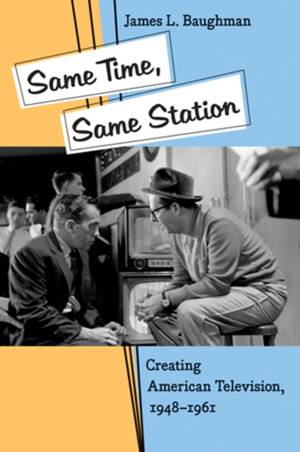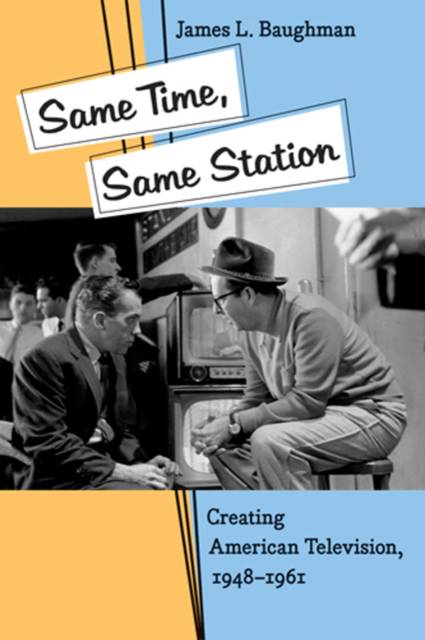
- Retrait gratuit dans votre magasin Club
- 7.000.000 titres dans notre catalogue
- Payer en toute sécurité
- Toujours un magasin près de chez vous
- Retrait gratuit dans votre magasin Club
- 7.000.0000 titres dans notre catalogue
- Payer en toute sécurité
- Toujours un magasin près de chez vous
Same Time, Same Station
Creating American Television, 1948-1961
James L BaughmanDescription
Outstanding Academic Title for 2007, Choice Magazine
Ever wonder how American television came to be the much-derided, advertising-heavy home to reality programming, formulaic situation comedies, hapless men, and buxom, scantily clad women? Could it have been something different, focusing instead on culture, theater, and performing arts?
In Same Time, Same Station, historian James L. Baughman takes readers behind the scenes of early broadcasting, examining corporate machinations that determined the future of television. Split into two camps--those who thought TV could meet and possibly raise the expectations of wealthier, better-educated post-war consumers and those who believed success meant mimicking the products of movie houses and radio--decision makers fought a battle of ideas that peaked in the 1950s, just as TV became a central facet of daily life for most Americans.
Baughman's engagingly written account of the brief but contentious debate shows how the inner workings and outward actions of the major networks, advertisers, producers, writers, and entertainers ultimately made TV the primary forum for entertainment and information. The tale of television's founding years reveals a series of decisions that favored commercial success over cultural aspiration.
Spécifications
Parties prenantes
- Auteur(s) :
- Editeur:
Contenu
- Nombre de pages :
- 460
- Langue:
- Anglais
Caractéristiques
- EAN:
- 9780801879333
- Date de parution :
- 01-03-07
- Format:
- Livre relié
- Format numérique:
- Genaaid
- Dimensions :
- 163 mm x 230 mm
- Poids :
- 766 g

Les avis
Nous publions uniquement les avis qui respectent les conditions requises. Consultez nos conditions pour les avis.






